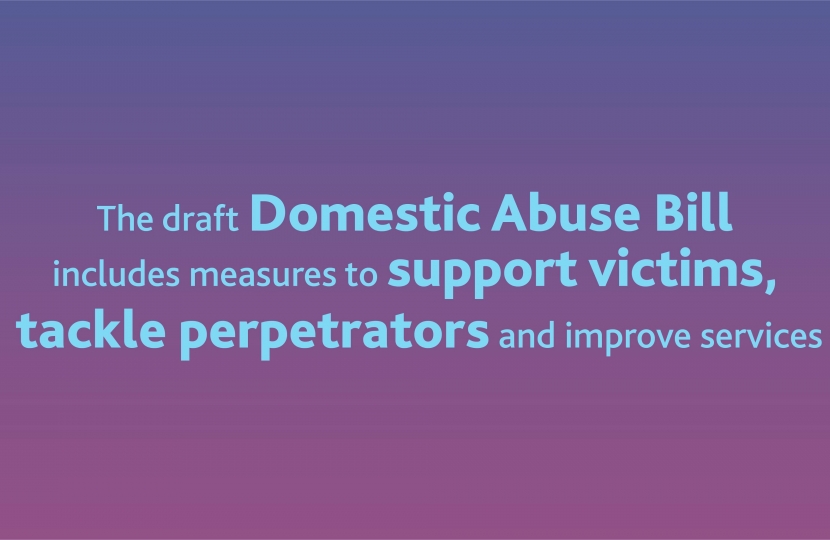
A raft of new amendments to the Domestic Abuse Bill will be presented, providing greater protections for victims and further clamping down on perpetrators.
The proposals include making non-fatal strangulation a specific criminal offence, strengthening legislation around controlling or coercive behaviour (CCB) and the widening of so-called 'revenge porn' laws.
The measures confirmed today have been developed closely with peers, advocates and victims who campaigned on these important issues. They form a series of amendments being tabled to the landmark Domestic Abuse Bill which enters Report Stage next week, with Royal Assent expected in the Spring.
Commenting on the new amendments, James said -
"These changes provide vital support to the many people who are subjected to many different forms of abuse in their own homes. They send a warning to perpetrators of this terrible form of abuse, and offer extra protections to the victims who need our support."
Non-fatal strangulation
This will be made a specific criminal offence, punishable by up to five years in prison.
The action typically involves an abuser strangling or intentionally affecting their victim’s breathing in an attempt to control or intimidate them.
Today’s announcement follows concerns that perpetrators were avoiding punishment as the practice can often leave no visible injury, making it harder to prosecute under existing offences such as Actual Bodily Harm (ABH).
Controlling or coercive behaviour (CCB)
It will no longer be a requirement that abusers and victims have to live together.
The CCB amendment will widen the scope of the definition of “personally connected” in the CCB offence so that the offence may apply to former partners and family members who do not live together.
This change follows a government review which highlighted that those who leave abusive ex-partners can often be subjected to sustained or increased controlling or coercive behaviour post-separation.
‘Revenge porn’
Laws around so-called 'revenge porn' were introduced by the government in 2015 and will be widened to include threats to disclose intimate images with the intention to cause distress.
More than 900 abusers have been convicted since revenge porn was outlawed but Ministers are determined to further protect victims, with those who threaten to share such images facing up to two years behind bars.
The Government is also tabling a number of other amendments to the Domestic Abuse Bill which will:
- provide special measures in civil courts similar to those available in family courts. This could include the use of protective screens in court or the ability to give evidence via video links to support vulnerable courts users.
- make it easier for victims who may prefer not to report abuse to avoid being cross-examined in person, by widening the list of evidence to prove abuse has occurred to include things such as a letter from a doctor or an employer.
- clarify the use of ‘barring orders’ in the family courts to prevent abusive ex-partners from repeatedly dragging their victims back to court – which can be used as a form of continuing domestic abuse.
- require public authorities conducting domestic homicide reviews to send a copy of their completed reports to the Domestic Abuse Commissioner – strengthening the opportunity to learn lessons and prevent future deaths.
The Home Office has also today announced the successful organisations that will receive part of the £500k announced to fund research into domestic abuse perpetrators. The aim of the fund is to develop our understanding of domestic abuse perpetrators and to strengthen the evidence base for what works in addressing their behaviour. The 11 successful organisations can be found here.
At the same time, the Government is investing hundreds of millions to deliver swifter justice and support victims. This includes a recent £40 million to fund vital helplines and recruit more specialist counsellors.


